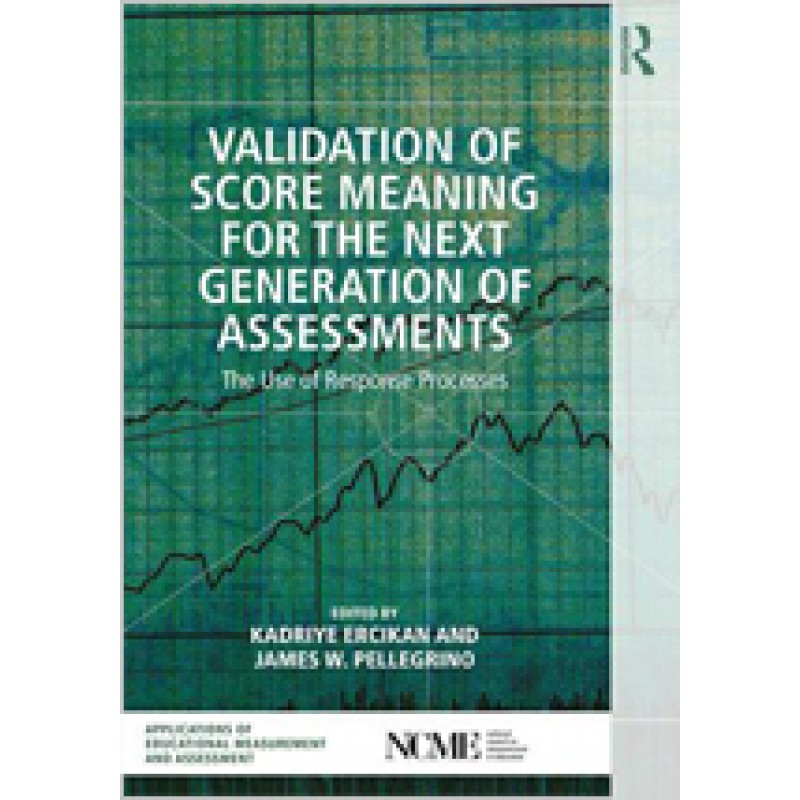Validation of Score Meaning for the Next Generation of Assessments: The Use of Response Processes, Mar/2017
| Author(s) | Edited by Kadriye Ercikan, James W. Pellegrino |
| ISBN10 | 1138898377 |
| ISBN13 | 9781138898370 |
| Format | Paperback |
| Pages | 156 |
| Year Publish | 2017 March |
Synopsis
Despite developments in research and practice on using examinee response process data in assessment design, the use of such data in test validation is rare. Validation of Score Meaning in the Next Generation of Assessments Using Response Processes highlights the importance of validity evidence based on response processes and provides guidance to measurement researchers and practitioners in creating and using such evidence as a regular part of the assessment validation process. Response processes refer to approaches and behaviors of examinees when they interpret assessment situations and formulate and generate solutions as revealed through verbalizations, eye movements, response times, or computer clicks. Such response process data can provide information about the extent to which items and tasks engage examinees in the intended ways.
With contributions from the top researchers in the field of assessment, this volume includes chapters that focus on methodological issues and on applications across multiple contexts of assessment interpretation and use. In Part I of this book, contributors discuss the framing of validity as an evidence-based argument for the interpretation of the meaning of test scores, the specifics of different methods of response process data collection and analysis, and the use of response process data relative to issues of validation as highlighted in the joint standards on testing. In Part II, chapter authors offer examples that illustrate the use of response process data in assessment validation. These cases are provided specifically to address issues related to the analysis and interpretation of performance on assessments of complex cognition, assessments designed to inform classroom learning and instruction, and assessments intended for students with varying cultural and linguistic backgrounds.
About the Editors:
Kadriye Ercikan is Professor of Measurement, Evaluation, and Research Methodology in the Faculty of Education at the University of British Columbia, Canada and Vice President of Statistical Analysis, Data Analysis and Psychometric Research at the Educational Testing Service.
James W. Pellegrino is Liberal Arts and Sciences Distinguished Professor and Distinguished Professor of Education and Co-Director of the Learning Sciences Research Institute at the University of Illinois at Chicago, USA.


